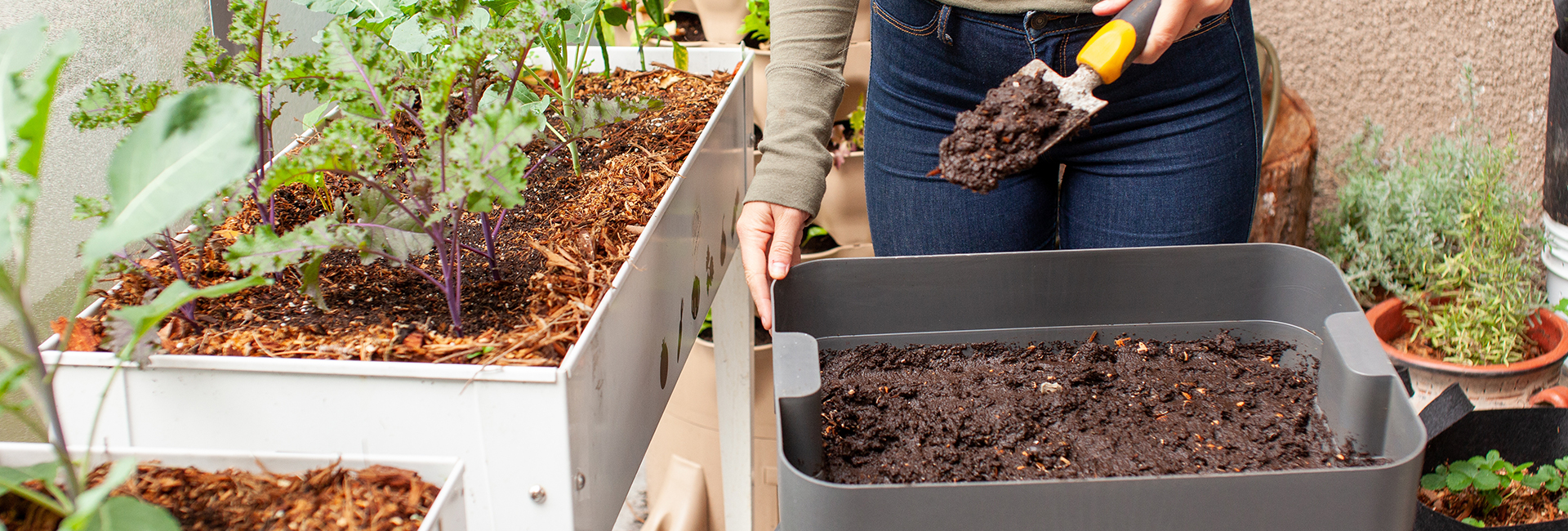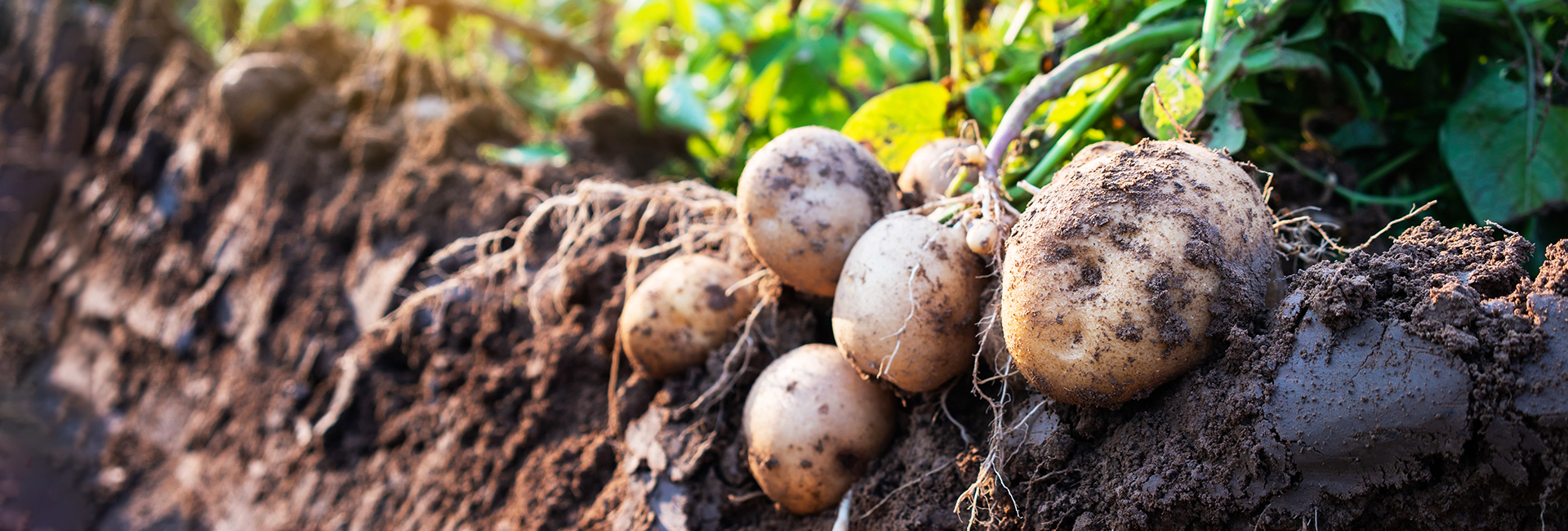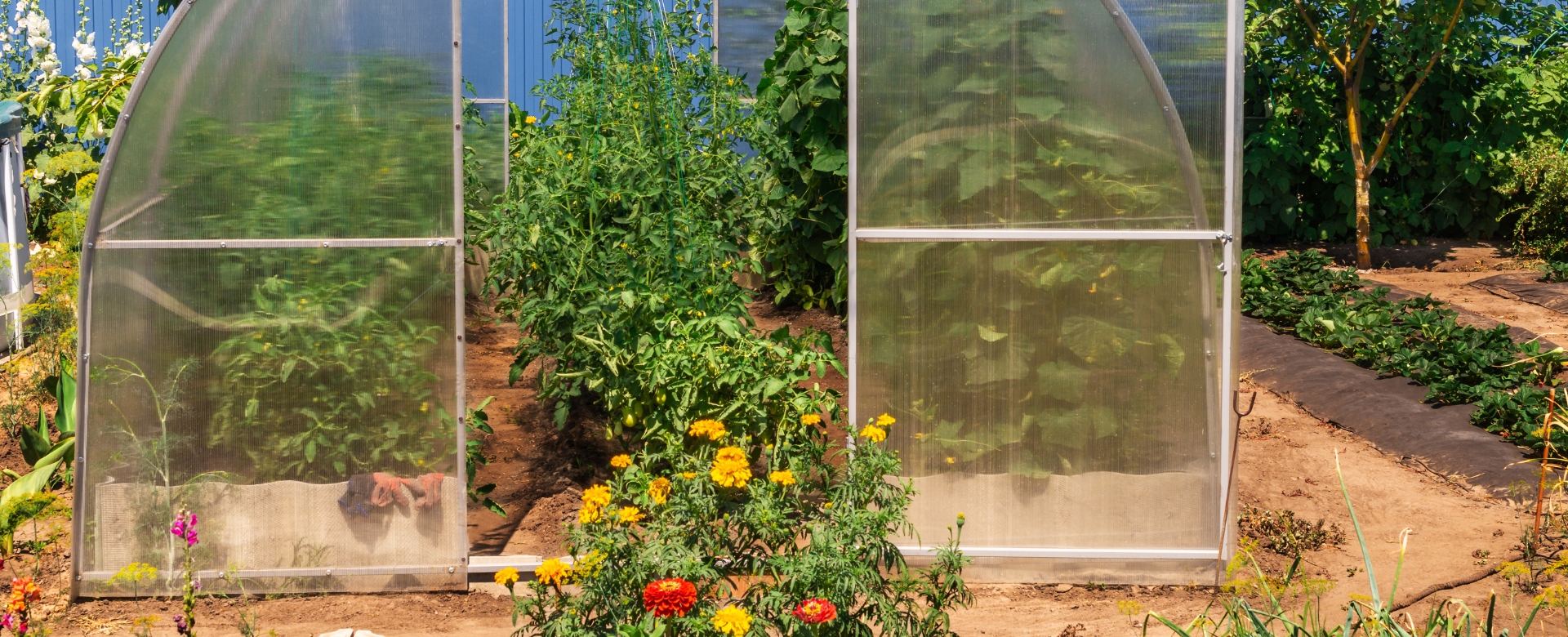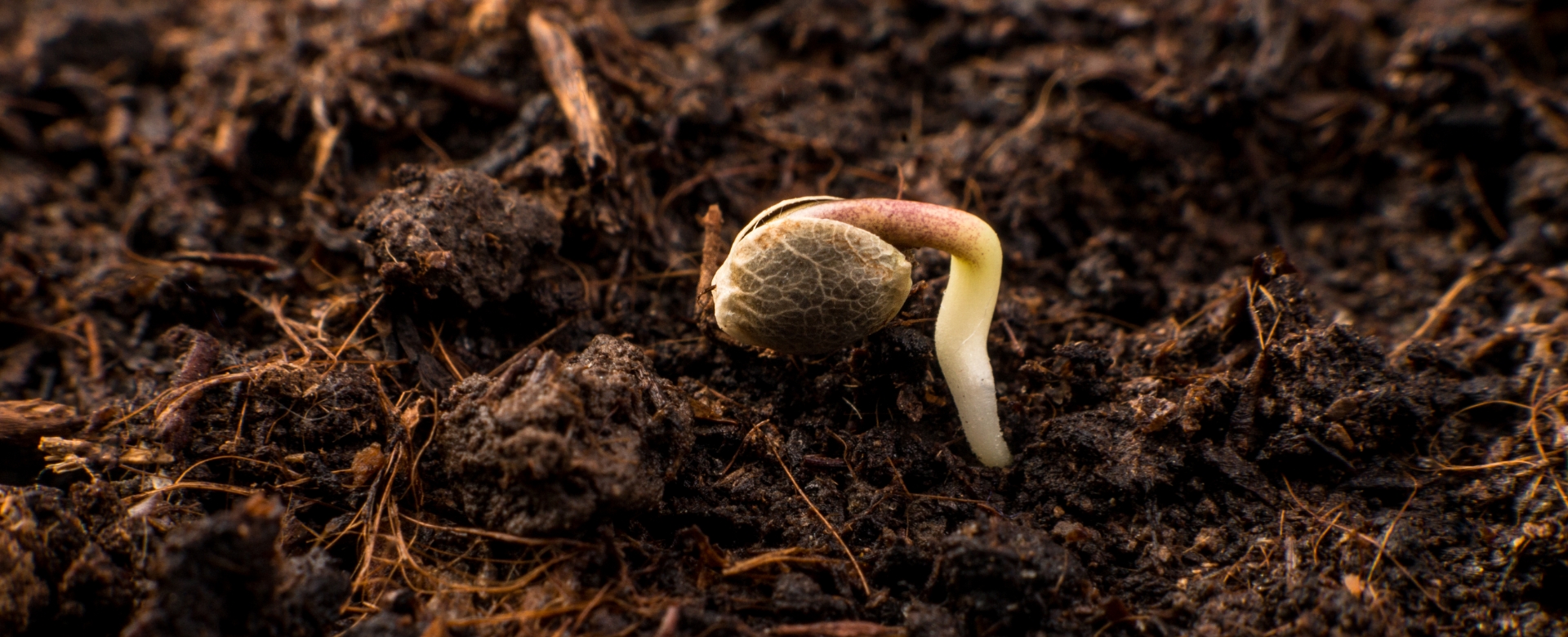For gardeners, worm castings are an awesome source of organic nutrients.
Compared to compost or manure, worm castings provide a wide range of benefits. They help build soil structures, they can repel pests, and serve as a natural fertilizer. However, there are disadvantages of worm castings in the garden. For one, these are much more of a soil amendment, as large volumes aren’t always readily available.
Ultimately, the pros of using worm castings in the garden far outweigh the cons. Here, we’ve outlined some of the advantages and disadvantages of worm castings, as well as provided some tips for the right way to make soil amendments with worm castings.
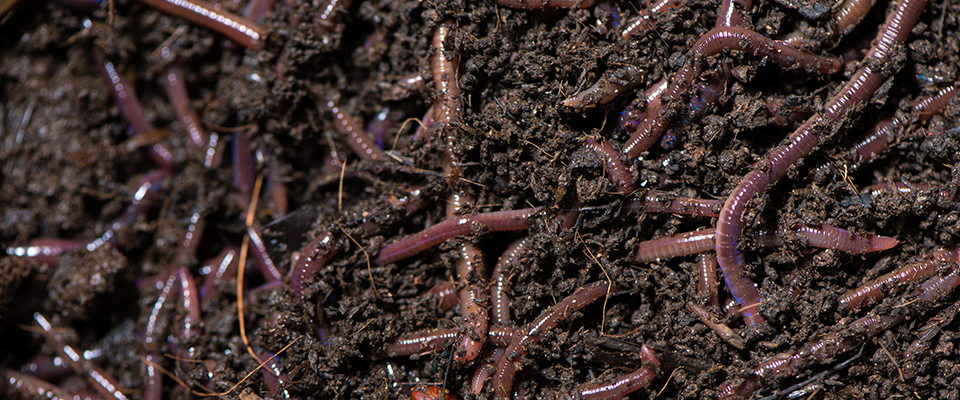
What Are Worm Castings?
Worm castings are the end-product of the breakdown of organic material by certain species of earthworm.
These earthworm species ingest organic matter such as decomposing vegetation or kitchen waste, and as they digest it, the material is broken down, enriched with the worm’s digestive enzymes, and excreted. In essence, worm castings are worm poop, which is a rich, dark, crumbly form of compost that is extremely beneficial to plant growth and soil health.
Worm castings are one of the best types of compost because they contain a high concentration of beneficial bacteria and microbes, nutrients, and enzymes. They can greatly improve soil structure, enhance its ability to retain water, and can even help protect plants from certain diseases.
7 Key Benefits of Worm Castings
Worm castings are often used in organic farming, gardening, and sustainable agriculture. They are a natural and environmentally friendly way to provide plants with the nutrients they need to thrive and grow big, and they’re commonly used in organic gardening to improve soil health.
- Worm Castings Improve Soil Structure – Worm castings are rich in nutrients and beneficial microbes, and they can help grow healthy plants. These beneficial microbes help to improve soil. They’re a strong aerator, for example, allowing oxygen into the soil. And they also greatly improve moisture retention.As a soil amendment, worm castings are a great choice to loosen thick clay or to add bulk to sandy soils.One garden maintenance tip: Broadcast worm castings over your beds in the spring and the fall. This is a great way to add helpful nutrients.
- Stopping Pest Problems – You can successfully manage garden pests like spider mite, whitefly, and aphid populations by mixing worm castings into garden soil. This lessens the need for pesticides.The process is simple. Try mulching with worm castings. This has been shown to reduce pest populations. The reason is that worm castings contain specific enzymes that many pests don’t like. This makes worm castings a great natural organic pesticide like garlic spray.
- Preventing Plant Disease – Research on the benefits of worm castings has demonstrated their ability to suppress certain soil-borne diseases, thereby promoting soil health. Worm castings have been shown to help prevent tomato blossom end rot, for example.
- As A Compost Starter – If you’re starting a compost pile outside, worm castings are a great starter. They can stimulate the ecosystem of your compost pile.The microbial activity of worm castings can also make your compost pile healthier.
- Faster-Growing, Bigger Plants – Worm castings are a natural fertilizer. They provide a big dose of nutrients, which help plants thrive. Gaia Green worm castings, for example, contain 2% total nitrogen, as well as beneficial microorganisms. This added nitrogen encourages plants to grow more leaves and flowers.
- Stronger Root Growth in Plants – Worm castings, when used as an organic fertilizer, have the potential to significantly enhance the strength of plant roots, benefiting both indoor and outdoor plants. By incorporating worm castings into potting soil or garden soil, root mass is amplified, enabling plants to absorb water and nutrients more effectively.
- Fertile Soils – Worm castings help soils that are low in organic matter become more fertile. For example, worm castings contain high amounts of nutrients like iron, manganese, calcium, magnesium, phosphorus, and potassium.
3 Key Disadvantages of Worm Castings
While there are minimal drawbacks to using worm castings, there are a few noteworthy disadvantages:
- Limited Supply – Worm castings tend to not be sold in high volumes compared to compost or manure. Therefore, if you’re trying to fertilize a large garden, worm castings will cost more than conventional compost. However, they are a great solution for potted plants, or for smaller beds within a larger garden.
- Hard to DIY – Worm composting can be difficult, especially compared with traditional compost methods. For example, worms require the right temperatures. Harsh weather will kill many earthworm species, if the composter isn’t properly protected.Other issues include temperature controls (too hot or too cold), as well as moisture (too much water) are another disadvantage to vermicomposting.
- Leachate Waste – If you’re working on your own worm composter, you might have noticed liquid runoff. This is called leachate. Some try to use leachate as a “worm tea” fertilizer. However, this run-off can include dangerous bacteria.Therefore, it’s best to dispose of it properly. One option for disposal: Use it to water your non-edible plants or pour it on your outdoor compost pile if it doesn’t contain an excessive amount of hazardous bacteria.Smelling the leachate is the best way to determine whether it can be used. If it smells unpleasant, throw it away. Even if the leachate doesn’t smell, it is not recommended to use it on plants that can be eaten.
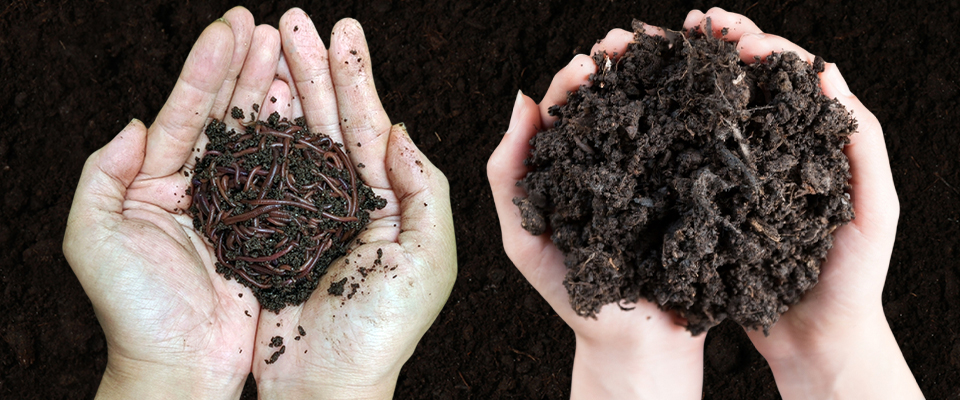
Worm Castings vs Compost: Which to Use?
Worm castings are a great soil amendment. However, there are several cases were you might consider traditional compost instead. Here are some use cases for worm castings and compost:
Creating a Potting Mix
- Worm Castings: In potting mixes, worm castings are excellent. They are less likely to be contaminated with seeds or bugs and contain more helpful microorganisms than conventional compost.
- Conventional Compost: In potting mixes, regular compost may be utilized. However, if you use compost in indoor plants, you run the risk of introducing bug eggs or seeds into your house.
Large Garden Area
- Worm Castings: You most likely won’t have enough worm castings on hand to make this practical. In this situation, normal compost should be used rather than worm castings, which are more expensive to purchase in bulk.
- Conventional Compost: When you require a lot of organic matter, you should use regular compost. For optimal results, dig in the compost and then distribute worm castings over the ground. Another low-cost option for soil amendments is mulching with grass clippings or using a green amendment like a cover crop.
As a Soil Amendment
- Worm Castings: Worm casting could be too limited or expensive to be useful, much like digging over an area of ground. Although they make a great soil amendment, it is usually more sensible to use them elsewhere. It’s not that you can’t utilize worm castings as a soil amendment; however, if you have a lot of ground to amend, it can be difficult.
- Conventional Compost: Being a soil amendment, compost excels. If you need to buy it, you won’t go bankrupt because you can make a lot of it at a reasonable price. With many of the same advantages as worm castings, compost is a fantastic soil amendment. Aeration, soil structure, and moisture retention are all improved. When you dig over a large area, it doesn’t matter that the amounts of nutrients and microbes are lower than in worm castings because the compost will draw worms to your soil.
Creating Liquid Fertilizer
- Worm Castings: Because it offers all the advantages of worm casting in liquid form, worm tea is an incredible liquid fertilizer. Vegetables, houseplants, and other plants in need of support can all benefit from it. Once you’ve brewed the tea, you can either add the leftover castings to your compost pile or bury them in the ground.
- Conventional Compost: Although useful, compost tea is not quite as effective as worm tea. It will work if you want to create liquid fertilizer and have compost. Worm castings, on the other hand, are by far the best option if you’re looking for something to specifically make liquid fertilizer.
How to Apply Worm Castings to Potted Plants
Worm castings are an excellent ingredient for potting mixes. But what about the indoor plants you have?
The good news is that worm castings may be utilized to nourish your indoor container plants because worm compost bins are an excellent way to create organic fertilizer if you don’t have a yard.
Use When Doing Houseplant Repotting
When you repot your plants, you can add worm castings to your potting mix to enrich the soil and add beneficial nutrients.
Use as Mulch
Your indoor plants will receive nutrients, and you can help manage pests like aphids, spider mites, and whiteflies by spreading worm castings on top of the soil.
Use as Liquid Fertilizer
One of the best natural fertilizers for promoting plant growth is worm tea. Both indoor and outdoor gardening benefit from its use.
Make worm tea by brewing the worm castings in water, which you can then use to feed your plants by adding to the water. It can be applied in a watering can or spray bottle.
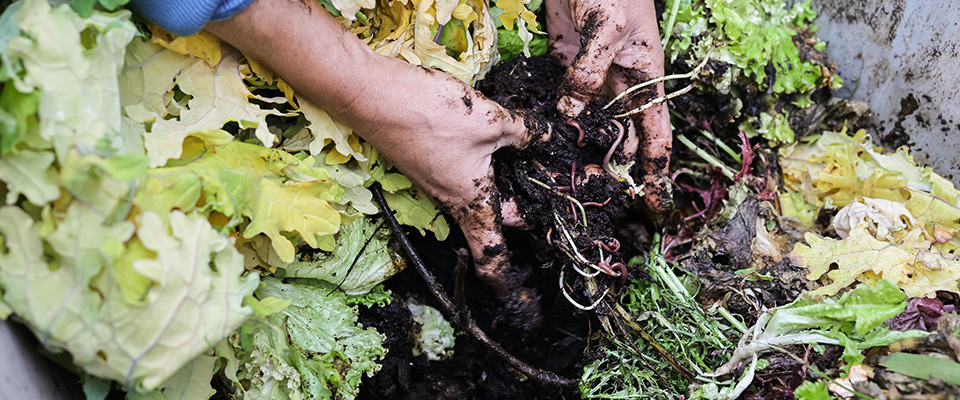
Worm Castings: Is It Possible to Use Too Much?
No, you cannot use excessive amounts of worm castings. Contrary to chemical fertilizers, too much worm casting won’t harm your plants or soil.
Given that it typically takes one to three months to produce worm castings, although the exact amount of time will vary depending on your system and the worms you’re using, it is doubtful that you will ever have “too much” castings.
If you ever had enough worm castings to fill a pot, you could plant directly into the castings because they have a neutral pH and won’t burn your plants.
Since you want to spread them as far as possible, it is advisable to mix them with dirt. Worm castings don’t drain as effectively if they aren’t mixed with soil, but that is the only drawback you might encounter. For seedlings, this is acceptable, but mature plants require improved soil drainage for their roots.
If you believe you have more castings than you need, you can save them for a later time.
Wrapping Up
In summary, worm castings offer numerous benefits for gardening. Many people choose to use this natural alternative to fertilizing plants, enhancing the growth of their flowers and vegetables in a sustainable manner. Worm castings are loaded with essential nutrients and can play an important role in getting bigger blooms and bigger harvests. It also improves soil structure, which makes it easier to spread air and water throughout the area. With careful application, any gardener can capitalize on its benefits while still avoiding any possible risks—making sure it’s only beneficial and never detrimental for their plants or garden.
Looking for some worm castings for your garden? Homegrown Outlet carries Gaia Green worm castings. Visit a location today to pick some up.

